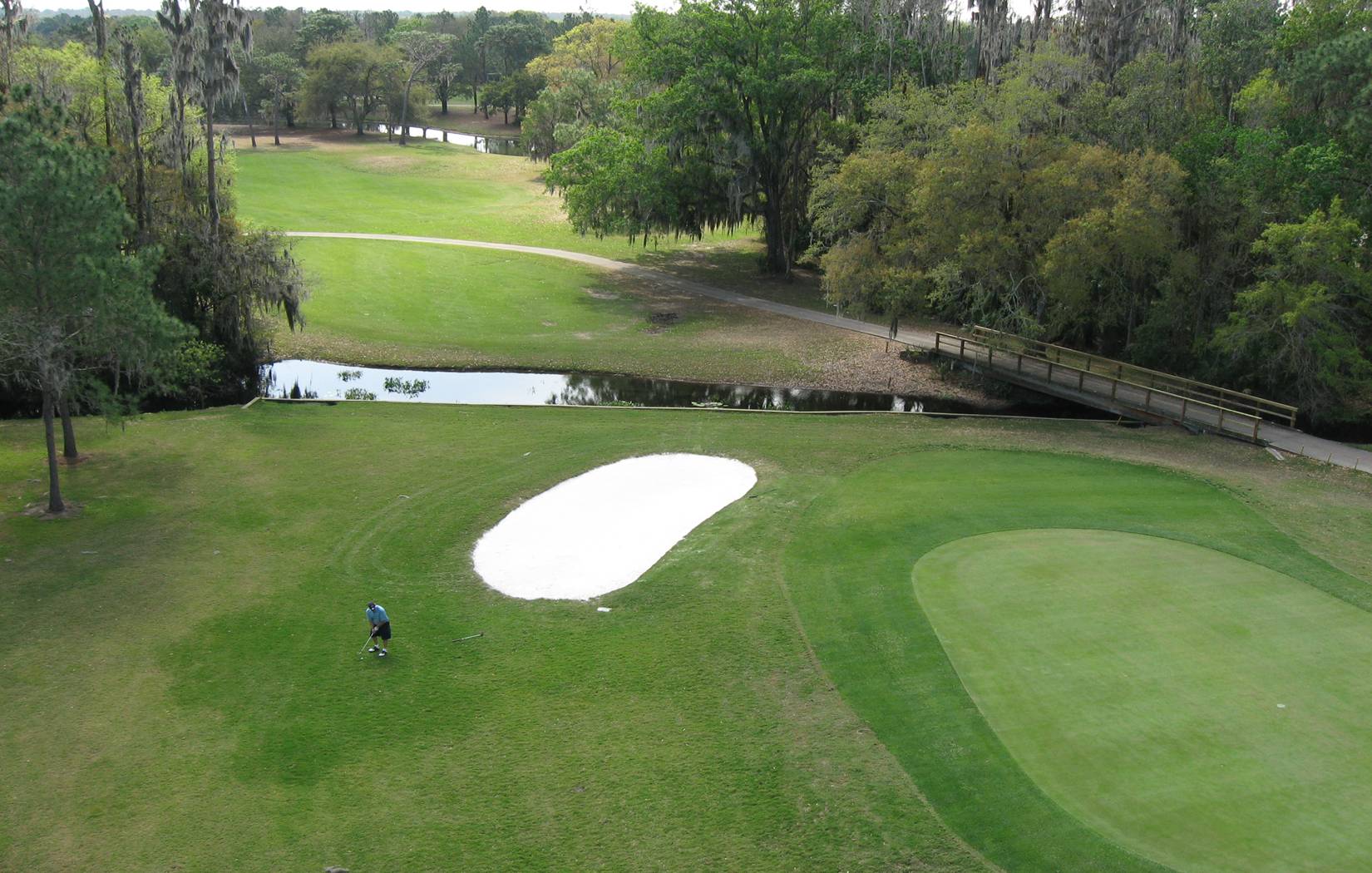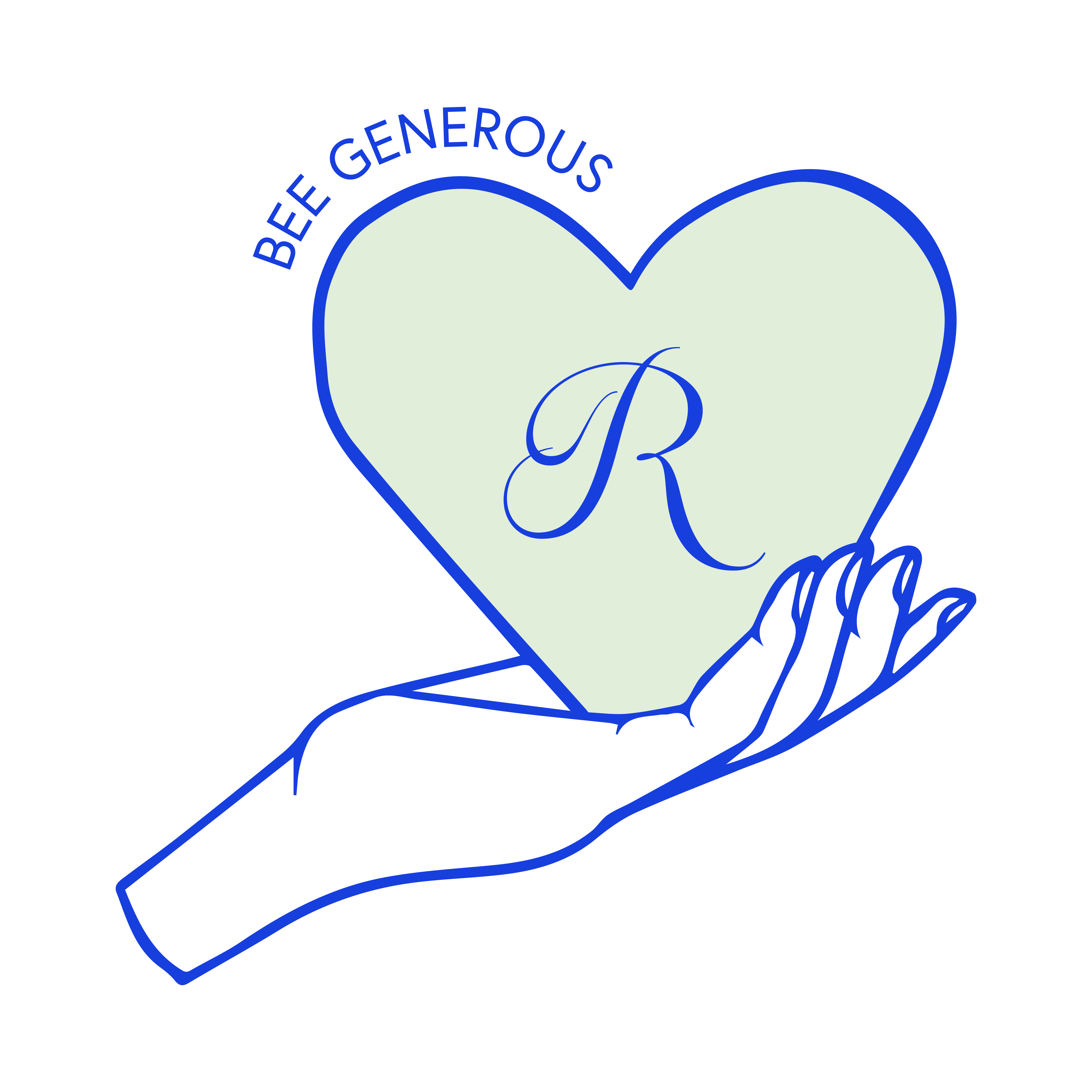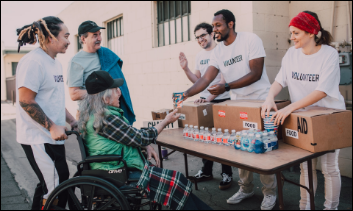Golf — it’s the last game standing. For the time being, of course.
While basketball, softball, flag football, soccer, volleyball, tennis and pickleball players are all sidelined — or should be — golfers are still in the swing of things, with most courses open. Imagine being out in the open air on beautiful expanses of green for four, five hours at a time, playing a game you love, with other people, and keeping score. Kinda makes you want to take up golf — even if you’re atrocious at it.
James Libby, of Seminole, took it up long ago. At age 67, he’s been very good at it for a long time, with a handicap that ranges between 5 and 9. He’s grateful for the rounds he plays three times a week at Seminole Lake Country Club, where he joins a close-knit group of participants that range in number from 20 to 35. He’s noticed a subtle shift in attitude.
“It’s at the point where, if I’m having a sucky day or hit a bad shot, I don’t care nearly as much,” he says. “How bad can it be? We don’t have the virus. We’re with a bunch of good guys having fun. Don’t get me wrong, though. We all still want to win.”
Golf is arguably the original social-distancing sport, says Bill Place, president of Ace Golf, which owns four semi-private golf properties in the greater Bay area, including Pebble Creek in Tampa. Players have their own balls and clubs. Rarely during play are people in close proximity, except when they wait to hit off the tee or putt. During the COVID-19 epidemic, players must stay at least six feet apart at all times.
That’s not been hard.
“No one wants to be the one who causes the club to close down,” Libby says. “You’d be shamed and shunned and beaten to death with sand wedges.”
The virus crisis has prompted a whole new set of safety rules that are largely uniform across all golf facilities.
Most impactful: one person to a cart, with exceptions made for family members who live together. That can cause courses to run low on buggies, which can slow start times and play overall.
To mitigate the effect, Place’s facilities have instituted time windows during which players can walk the courses, usually during late afternoons. The City of St. Petersburg’s public courses always allow walking, says Jeff Hollis, golf courses director for the city.
Other measures: Flag sticks must remain in place. Ball washers have been covered or decommissioned. Rakes have been removed from sand traps. Carts, driving range baskets and other tools are routinely and meticulously sanitized. “Pretty much every touch point we can think of,” Place says.
The holes themselves have been revamped. The idea is to prevent players from reaching in for balls and instead knock them out with their putter. Some courses have turned the holes’ plastic bottoms upside down, some have inserted sections of styrofoam pool noodles, some put PVC donuts in the bottom. All have the effect of creating a hole that’s less than an inch deep. There have even been stories of courses sticking styrofoam coffee cups in holes — if you hit the cup, it counts as a make. (Lousy putters rejoiced.)
Swing stations on driving ranges have been moved farther apart. League play has been canceled. Beverage cart service halted. Traditional post-round handshakes are obviously out.
The pandemic’s impact is not restricted to the courses themselves.
Many pro shops have put tape on the floor to remind people of social distancing. Some have erected plexiglass shields to protect clerks. Using cash is discouraged or banned. The City of St. Petersburg’s courses allow only four people in the pro shop at any time. Some facilities have simply shut their shops down and will send cart attendants to get something if a player absolutely needs it.
Law enforcement officers regularly stop by to monitor compliance, the course operators say. And comply they do.
Bill Place is blunt about his reasons for being so stringent on the rules. “We don’t want anyone to get sick, and if we’re extra vigilant we can prevent getting shut down,” he says.
It’s a fear most golf operators share. At the moment, at least, there does not seem to be much call for course closures by Bay area government officials, and Gov. Ron DeSantis’s stay-at-home orders made an exception for golf, deeming it an “essential recreation activity” as long as social-distancing guidelines are followed.
While golfers may be finding a lifeline at the course, it’s a far different story for the owner/operators, many of whom are simply trying to keep their facilities alive. Most courses in the Bay area have managed to stay open, but business has been way off.
“Courses can’t survive on the golf aspect alone,” Place says. “I make about half of my profit on restaurant and banquet business.” The banquets are gone. The restaurants are takeout only, bringing in a fraction of the revenue they did before. Layoffs have ensued.
Dave Creighton had some difficult choices to make in March. He’s the operating partner in a family business that owns Fox Hollow Golf Club in Trinity and two other courses. Fox Hollow is semi-private: It has 300 members but is also open to the public for play. “Before the state got shut down, I was starting to see a lot of new faces,” Creighton says. “We were seeing New York plates in the parking lot. Frankly, it was making me and my staff nervous.”
Fox Hollow drastically cut back hours in the pro shop for a few days, then closed it altogether. Not long after, Creighton decided to restrict the club to members only. “I joke with them: ‘Enjoy it now. It’s not going to last,’” he says. “It’s more relaxed now, but the number of rounds played is way down. I do get stressed when I look at the bank account.”
Fox Hollow also lost its banquet and dine-in restaurant business. Their big Easter brunch, a club tradition, was takeout only. The facility missed out on most of the premium fees generated by non-members during high season. Public play accounts for 60 percent of the club’s golf business, Creighton says. Fox Hollow’s golf revenue stream is now limited to membership dues, cart fees, and a few dollars from the driving range. “We’re hanging on, trying to survive,” he says.
Owner/operators take solace in knowing that they’re providing much-needed outdoor recreation for a whole lot of people who are otherwise cooped up.
Hollis, St. Pete’s golf courses director, runs city-owned properties not completely governed by the bottom line. “People are very appreciative that we’re open,” he says. “We’re doing our best to give people an outlet.”
Even the independent owners who have endured serious financial hits recognize some pluses. “We’re grateful not to be in the situation that so many businesses are in, having to close, having no revenue.” Place says, “And we’ve noticed people going out of their way to help the courses — buying food and drinks from the restaurant, tipping well. They obviously want to keep us going.”
And then there’s golf itself, the last game in town. “I’ve been working in this business since I was 13,” Creighton says. “It can’t be all about the money. You measure your success by people as well. My office door is always open and I can’t tell you how many people stick their head in to thank me for the opportunity to play.”
Creighton, once a highly ranked club pro, is using this time to play more. “I’m trying to get back to that bar where I once was, or past it,” he says. “Plus the members enjoy it when one of the staff goes out and plays with them.”
And, finally, there’s this: “The golf-course conditions were great before,” Creighton says. “They’re fantastic now. With the reduction in holes played, there are not a lot of divots or ballmarks.”
Just another reason for golfers — or newbies, for that matter — to throw a bag in the trunk and head out to the course.
The pandemic has affected golf tournaments, too. But it’s not stopping the Pelican Women’s Championship; read about the new dates for the Pelican, which will be the first LPGA tournament in Tampa Bay since 1989.
Read more stories from duPont REGISTRY Tampa Bay’s Health & Happiness Issue, Summer 2020.






